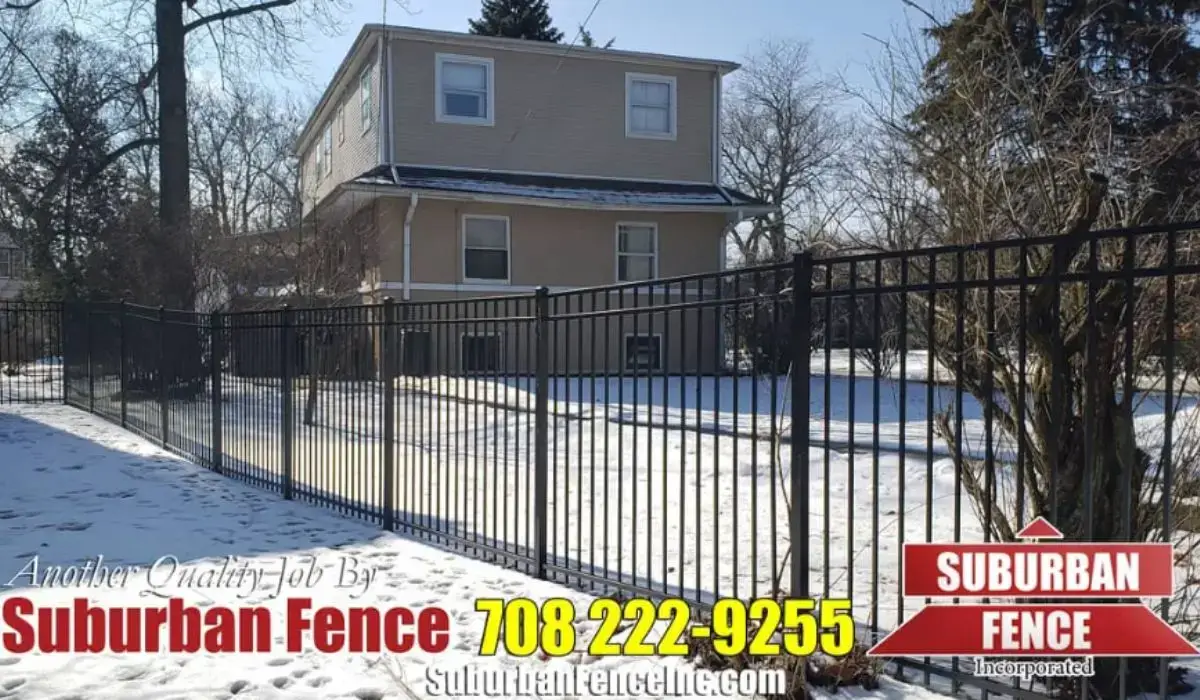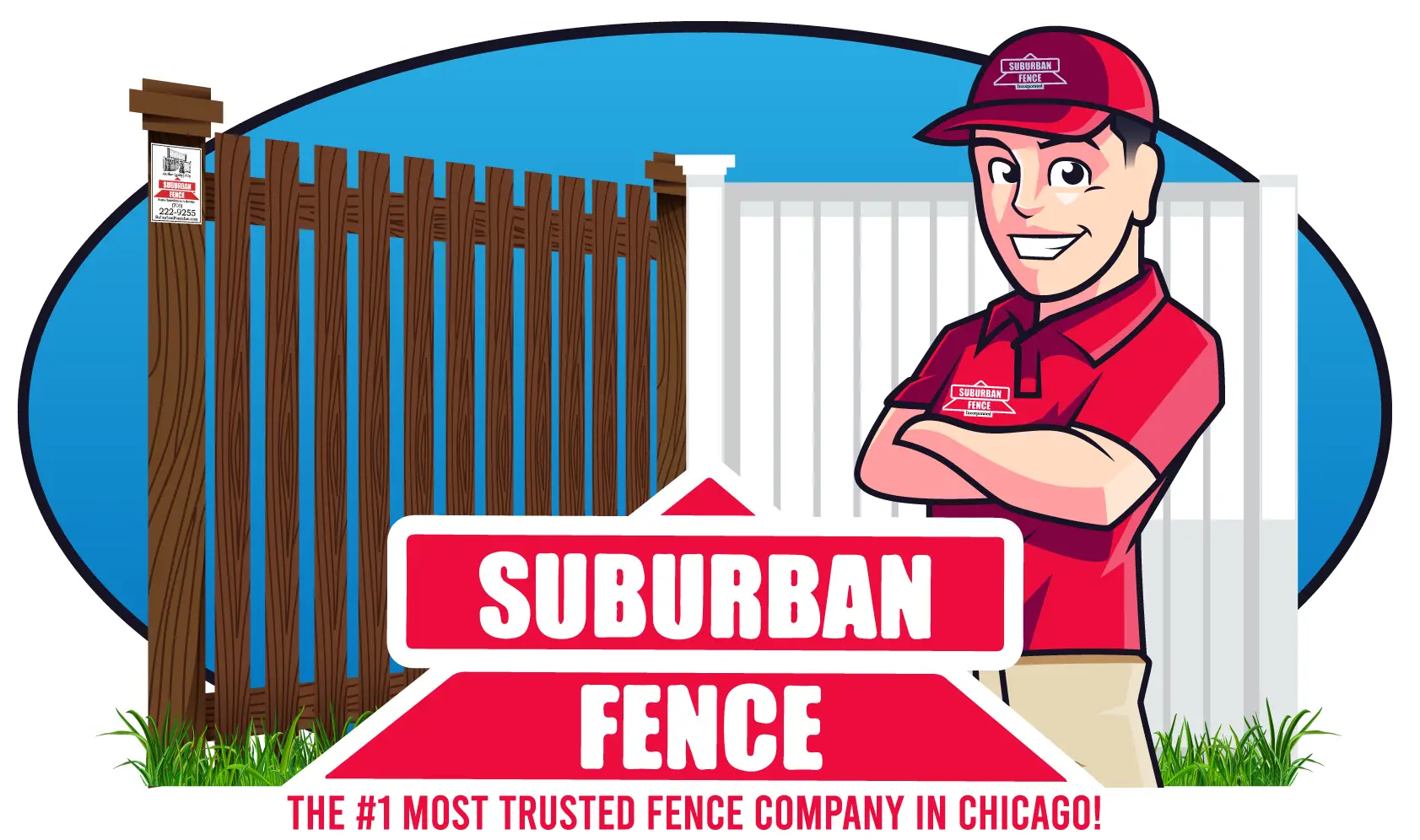
Winter Damage: How Snow and Ice Can Destroy Your Fence
How Snow and Ice Cause Winter Damage to Your Fence
Chicago’s long, frigid winters bring more than just cold air and icy roads—they can also take a serious toll on your fence. Freezing temperatures, excessive moisture, and heavy snow accumulation cause wear and tear on even the most durable materials. Without the right precautions, property owners may face costly repairs or complete fence failure by the time spring arrives.
Suburban Fence Inc. has been providing expert fencing solutions for over 30 years, helping homeowners and businesses protect their properties from extreme weather. Understanding how different fence materials respond to harsh conditions and implementing preventative measures can extend the lifespan of your investment.
Below, we’ll examine the specific threats snow and ice pose to fences, along with practical steps to minimize the risk of structural failure.
Common Ways Winter Conditions Harm Fences
The impact of extreme cold varies depending on the type of fence, its installation, and its exposure to the elements. Snow and ice contribute to different forms of winter damage, from moisture-related decay to structural stress caused by freezing and thawing cycles.
Moisture Damage & Rot (Wood Fences)
Wood is naturally porous, meaning it absorbs water when exposed to melting snow. During freezing conditions, the trapped moisture expands, weakening the wood fibers and causing cracks. This cycle, known as “freeze-thaw weathering,” leads to splitting, warping, and eventually rot.
- The USDA Forest Products Laboratory states that untreated wood can absorb up to 30% of its weight in water, making it highly susceptible to decay.
- Softwood species like pine and cedar are particularly vulnerable, while pressure-treated wood and hardwoods provide better resistance.
Preventative Measures:
Applying a high-quality waterproof sealant before winter helps reduce water absorption. Keeping snow from piling up along the base of the fence also minimizes prolonged exposure to moisture. Property owners should check for early signs of rot, such as darkened areas or softened spots, to address problems before they worsen.
Cracking & Brittle Fences (Vinyl & Metal Fences)
Low temperatures affect vinyl and metal fences differently but can cause significant structural problems for both materials.
- Vinyl Fences
The flexibility of vinyl decreases as temperatures drop. At 14°F (-10°C), vinyl becomes brittle and prone to cracking under pressure. If struck by a falling branch or snowblower impact, panels can break, requiring full section replacements.
- Metal Fences
Thermal contraction in freezing temperatures can loosen screws, weaken welds, and increase susceptibility to rust formation. Expansion during temperature rises causes additional stress on joints, leading to misalignment.
Preventative Measures:
For vinyl, installing impact-resistant fencing materials rated for cold weather can help reduce breakage. Metal fences benefit from rust-resistant coatings and properly anchored posts that compensate for thermal expansion. Regular inspections to tighten loose fasteners before winter can prevent long-term structural issues.

Weight of Snow & Ice on Fences
The weight of accumulated snow and ice can strain fence posts, causing them to bend or collapse. This is especially problematic for taller or older fences that already show signs of instability.
- Wet snow is significantly heavier than dry snow. According to the National Weather Service, 10 inches of fresh snow equals 1 inch of rain, which weighs about 5.2 pounds per square foot. This weight adds up quickly on horizontal fence rails.
- Ice buildup from freezing rain can be even more damaging, as it clings to surfaces and adds extra load without melting as quickly as snow.
Preventative Measures:
Gently brushing off excess snow after heavy storms can help prevent overloading. Trimming back tree branches that could snap under ice accumulation also reduces the risk of impact damage. For extra support, reinforcing fence posts with deeper footings can improve overall stability.
How to Prevent Fence Winter Damage?
A well-maintained fence is far less likely to suffer from winter-related deterioration. Taking action before the first snowfall ensures your fence is ready to withstand the season’s harsh conditions. Choosing a trusted local fence company with experience in cold-weather fencing solutions can make all the difference in long-term durability.
Proactive Maintenance Before Winter Hits
Preventative care significantly extends the life of a fence by addressing weaknesses before cold weather makes them worse. The shifting ground from frost heave—where soil expands as it freezes—can cause unstable fences to lean or loosen. Regular fence maintenance Chicago helps prevent these seasonal issues by reinforcing weak spots before they turn into costly repairs.
- Experts recommend that fence posts be buried at least 3 feet deep (preferably below the frost line) to prevent movement caused by frozen ground.
- Checking for loose fasteners, cracks, and weak sections in the fall allows time for reinforcements before winter begins.
Applying rust-proofing treatments on metal fences and re-sealing wooden fences every 2 to 3 years improves resilience against moisture damage.
Snow Removal Best Practices
Improper snow removal techniques can actually increase the risk of winter damage rather than prevent it. Many property owners unknowingly stress their fences by using excessive force when clearing snow.
- Avoid piling shoveled snow directly against the fence, as the weight and prolonged exposure to moisture accelerate wear.
- Do not use metal shovels or sharp tools, which can scrape protective coatings off fences. Instead, opt for a soft-bristle broom or plastic shovel.
For ice buildup, never attempt to chip away frozen layers with a tool, as this can crack brittle vinyl or dent metal surfaces. Instead, applying a safe, fence-friendly de-icing solution can gradually melt the ice without causing harm.
Choosing the Right Fence for Harsh Winters
Selecting a fence designed for Chicago’s freezing conditions ensures durability and minimizes future maintenance. Certain materials perform better than others when exposed to snow and ice:
- Vinyl: Requires little upkeep but should be impact-resistant to prevent breakage in cold weather.
- Metal: Durable and long-lasting but needs rust protection. Galvanized steel and aluminum offer better corrosion resistance.
- Pressure-Treated Wood: Superior moisture resistance compared to untreated wood, but still requires periodic sealing.
Professional installation plays a key role in how well a fence holds up during extreme weather. Poorly anchored posts shift more easily in frozen ground, leading to instability. Suburban Fence Inc. specializes in residential fencing and commercial fencing that are built to withstand Chicago’s winters.
When to Call a Professional for Fence Repairs?
Some fence issues go beyond simple fixes and require expert attention. If a fence leans significantly, has multiple cracked sections, or shows signs of severe rot, delaying repairs could make the problem worse.
Emergency fence repair Chicago ensures that winter-related damage doesn’t lead to complete fence failure. Structural issues that seem minor at first—like a loose post or a small crack—can quickly turn into major concerns under the weight of snow and ice.
Suburban Fence Inc. provides assessments to determine whether repair or replacement is the best option.
Protect Your Fence Before the Cold Causes Lasting Damage
Fences endure months of harsh conditions during Chicago winters, but proactive maintenance can prevent costly repairs. Addressing small issues before the season starts, clearing snow properly, and investing in weather-resistant fencing Chicago will help extend the life of your fence.
For those needing professional repairs, reinforcements, or a full replacement, Suburban Fence Inc. provides high-quality solutions tailored for cold climates. Contact us for a FREE quote or call (708) 960-1264 for expert fence repair in Chicago.
